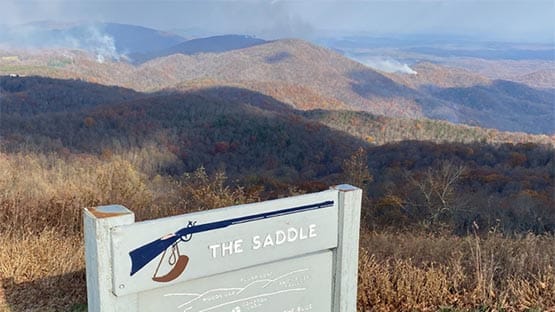
The Virginia Department of Forestry responded to 156 wildfires that burned nearly 25,000 acres and damaged 13 structures. But it could been far worse. Suppression efforts are credited with saving 224 homes and 268 other structures, with an estimated value of $46.8 million.
For comparison, in 2022, there were 89 wildfires that burned 2,654 acres.
The fall fire season ran from Oct. 15 to Nov. 30 each year.
“With 35 consecutive days of suppression efforts, this fall fire season provided tremendous challenges,” said State Forester Rob Farrell. “Our wildland firefighters once again answered the call to protect Virginia’s communities and natural resources. These successes would not be possible without our local, state and federal partners, as well as supporting resources from other states.”
Drought conditions combined with seasonal factors such as low humidity, high winds, dry leaves and grass, allows wildfires to start easily, spread quickly and be difficult to contain.
Although the fall fire season has ended, the threat of wildfire is always present, and many parts of Virginia are still in a drought.
“Until drought conditions lift, fire danger will remain elevated,” said DOF Director of Fire and Emergency Response John Miller. “The leading cause of wildfires this year was once again escaped debris burning. Many localities have implemented fire restrictions, so check with local officials before conducting any outdoor burning. Even if no fire restrictions are in place, we encourage those in drought areas to delay all outdoor burning until the drought is lifted.”
Tips when burning debris
- Check with local officials before burning
- Avoid burning if your locality is in a drought
- Avoid burning on dry, windy days
- Keep your burn pile small
- Stay with your fire until it’s completely out (drown, stir, drown again, ensure it’s cool)
- Have a rake or shovel and charged water hose on hand
- Have a phone ready to call 911 if a fire escapes your control
- Consider a “green” alternative to burning yard debris: compost your organic yard waste










